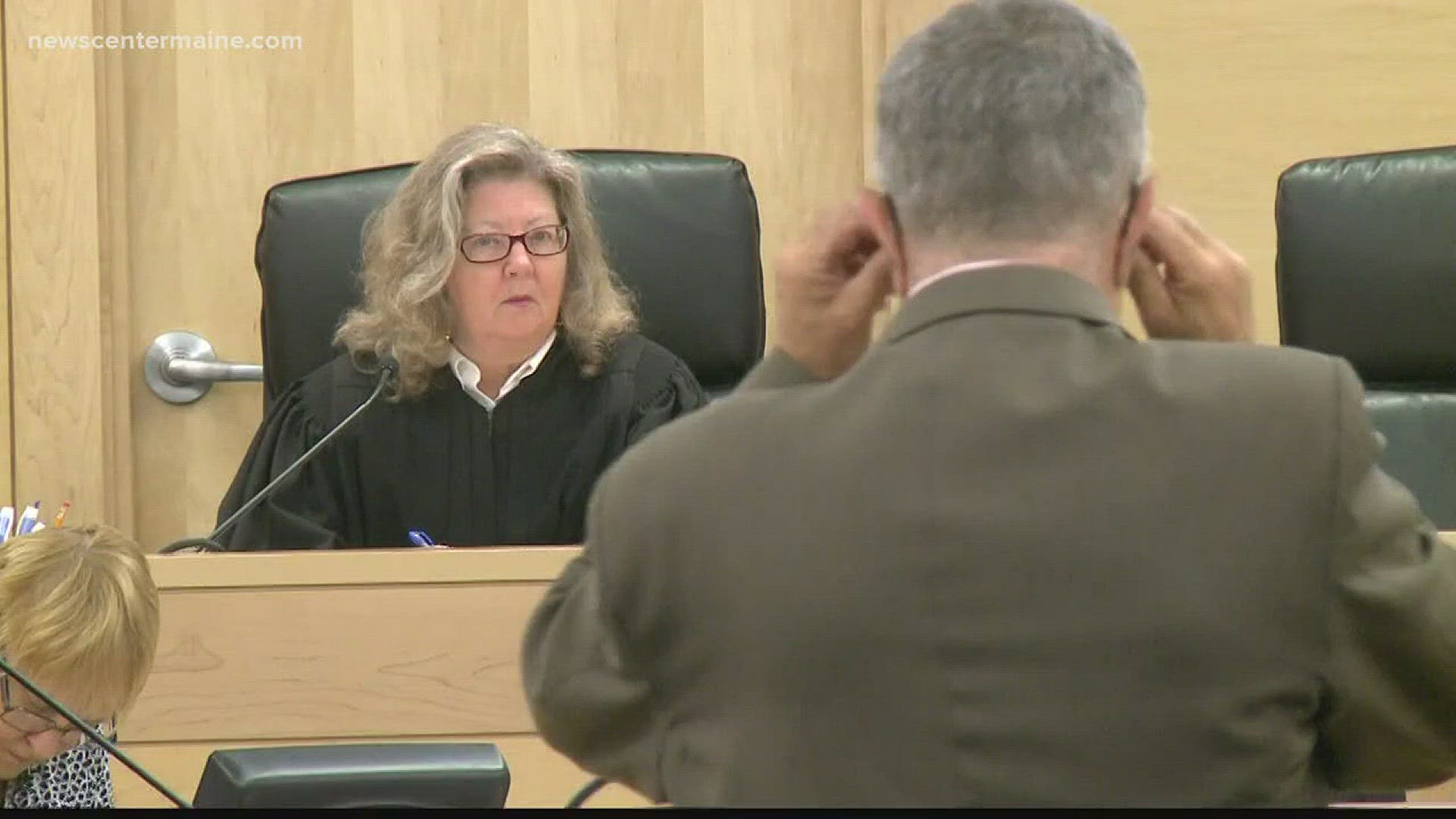BANGOR (NEWS CENTER Maine) – The state rested its case Tuesday in the trial of Phillip Scott Fournier, the man accused of killing a 16-year-old girl back in 1980. Exactly what instrument killed Joyce McLain remains a mystery.
McLain’s body was found behind Schenck High School in East Millinocket in August of 1980. The teenager was found dead two days after she didn't come home from jogging. She was left naked with her hands tied behind her back, wearing nothing but her running shoes and socks.
In May of 1981, Fournier confessed to killing McLain but quickly recanted, claiming he thought he was to blame for her death but realized he was wrong.
He wouldn't be arrested until March of 2016.
Maine's former Chief Medical Examiner, Margaret Greenwald, described the injuries McLain sustained in the attack. Greenwald said marking around the teenager's neck indicated asphyxiation and that the bruising under her left eye indicated she was struck while still alive.
Greenwald testified that McLain died from blunt force trauma to her head. She believes the injury came from one forceful blow.
In his initial interviews with police, Fournier confessed to hitting McLain in the face with a glass insulator. Greenwald confirmed the mark could be the result of being hit with an object like the insulator. Greenwald said she couldn't conclusively determine that the insulator was what caused the death blow.
Former Maine State Police Detective Daryl Peary was the last witness for the state to take the stand.
Peary said he took over the case in 2008, shortly before investigators exhumed McLain's body for DNA testing. He testified that some early police reports that would have included Fournier’s initial confession were missing.
One piece of evidence the defense asked Peary about was an audio recording of a conversation between Fournier and his sister that took place in 2016, while Fournier was being held in the Penobscot County Jail.
The two discussed whether Fournier's mother, Anita Powers, would testify at his trial. His sister stated that Powers was supposed to speak to police that day but that she, "didn't go because she got too scared."
Fournier told his sister if Powers did testify she would need to, "get her head on straight," before doing so. He also said that he wanted to have a sit down with his mother and step-father soon to, "have a long conversation about everything." Fournier stated the reason he was in jail was because, "state police couldn't find who did it," and that they, "picked the easiest person to frame."
The defense called two witnesses on Tuesday, both of whom were asked about a possible alternate suspect.
Richard Stanley testified that he and a man named Peter Larlee were supposed to go out searching for McLain together the morning McLain's body was found. He stated the two planned to head out at 6 a.m. but Larlee never showed up. Stanley said he thought Larlee had just over-slept, but when he went to get him, he wasn't home.
Stanley said he decided to go out looking anyway and that's when he saw all the police at the high school. Stanley learned a short time later that McLain's body had been found.
The state questioned whether Stanley had ever asked Larlee why he didn't show up that morning. "No," Stanley replied.
Stanley's sister, Carrie Porter, was living at her grandmother’s house when McLain was murdered. That home was right next door to Larlee. Porter recalled seeing Larlee leave his home very early the morning McLain's body was found. She testified he was headed towards the high school with a large brown duffle bag.
"I kept wondering why he was leaving without others to search," Porter testified.
Porter also said when Larlee came back home later that day he "had a big smile on his face and was walking like he was happy."
Peter Larlee died of a heart attack on March 2nd of 2016, two days before police arrested Fournier for McLain's killing.
Prosecutors pointed out that Porter didn't go to the police with this information until 1996 -- 16 years after McLain's murder.
Other investigators are expected to be called by the defense in the coming days.
If Fournier is convicted, he faces 25 years to life in prison.

